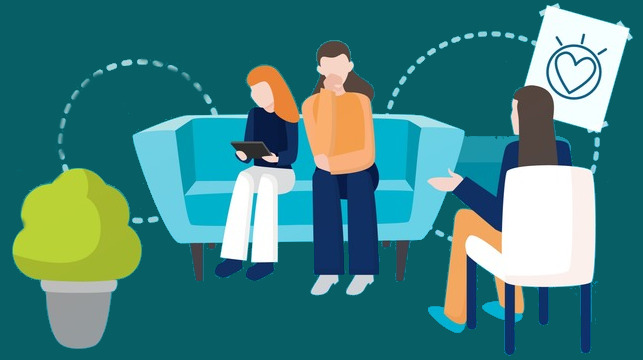A healthy body requires a healthy mind. And sleep is an essential part of mind health. Lack of sleep negatively affects decision making, learning, memory and driving ability. Millions of people don’t get enough sleep. Here we at Psychologie India help you to improve your sleeping habits and mental health.
While poor sleep is a symptom of psychological disorders, there is also evidence that short sleeps may contribute to a poorer psychological state. People display more depressive symptoms after one night of poor sleep than after a period of partial sleep deprivation that is followed by a full night’s repose.
We all know that getting a good night’s sleep is essential for our body. It helps us learn, boosts our memory, and keeps our wits about us. But going without sleep can have the opposite effect fast weakening our mental faculties and making us irritable and difficult to work within the following day. Sleeping for at least seven hours will help keep your mind clear and at its best for the day ahead.
Lack of sleep affects your brain
Your brain needs enough sleep in order to function properly, and sleep deprivation can affect your health. As little as one night of bad sleep can have a serious effect on your decision-making. Lack of sleep affects the area of the brain that controls alertness, attention, decision making, and cognitive processes. When you’re tired, the brain’s reward centre also gets activated and dials up your craving for sweets and high carb foods far more than when you’re well rested.
Sleep disorders are on a rise these days and it is a matter of concern for us. People have become really dull, have lost their energy and are suffering from a variety of diseases including obesity, diabetes and cardiovascular diseases. They require proper sleep uninterrupted over 6 to 8 hours and regular exercise for at least 30 minutes for one hour in the morning and evening.
Symptoms of sleeping difficulty may include:
- Difficulty falling asleep at night
- Waking up during the night
- Waking up too early
- Not feeling relaxed and well-rested after a night’s sleep
- Daytime tiredness or sleepiness
- Irritability, depression or anxiety
- Difficulty focusing on tasks, paying attention, or remembering the things.
- Having a difficulty in remembering, concentrating or focusing on tasks
- Increased errors or accidents
- Ongoing worries about sleep
Causes of sleeping difficulty may include:
Common causes of Sleeping Difficulty include:
- Stress
- Travel or work schedule
- Poor sleep habits
- Eating too much late in the evening
- Caffeine, nicotine and alcohol
- Mental health disorders
- Medications
- Medical conditions
Following are the best foods that will help you sleep better:
Looking for a natural way to help you fall asleep faster? Snacking on the right foods might be the simple solution.
1. Milk
When you can’t sleep, try having some warm milk before bed to help you doze off quickly. Milk contains tryptophan, calcium, and D, all of which promote sleep. Make sure you’re using a brand that’s unadulterated so it has no preservatives, hormones or additives, and make it a little healthier by adding a pinch of turmeric for anti-inflammatory and digestive properties.
2. Almonds
Almonds and homemade almond milk are wonderful foods to help you sleep better, especially if you’re stressed out or have a tougher time falling asleep. They contain melatonin, and are also repair foods that help the body repair itself during the night which makes it an excellent choice before bed. Make sure to have a few almonds for dessert after dinner, or some almonds with your homemade almond milk for a sleep inducing snack at night!
3. Bananas
Bananas contain tryptophan, a vital component in the production of melatonin, allowing your body to naturally manufacture more. Bananas are a great way to kick-start and end your day. Our body recharge during sleep, and bananas have very high potassium content. They are one of the foods that the body uses for building and repairing muscles. Bananas also have niacin, which helps relax nerves, reduce stress, and prevent illness.
4. Chamomile Tea
Chamomile tea has long been used for its soothing properties and to help people relax. Adding chamomile tea to your evening routine can help you fall asleep faster and stay asleep longer.
5. Chocolate
Chocolate may be the preferred way to end a day. Chocolate is an effective way to improve sleep when you can’t sleep, aim for dark chocolate – but not more than an ounce and a half of it overall. Dark chocolate contains magnesium that can help you relax.
Prevention
Good sleep comes from good sleep habits. Following steps helps to get good sleep:
- Keep your bedtime and wakeup consistent, even on the weekends.
- Stay active — a regular activities help promote a good night’s sleep.
- Find out if your medications may be causing your sleep problem.
- Avoid or limit naps.
- Avoid or limit caffeine and alcohol, and don’t use nicotine.
- Avoid large meals and beverages before two hours of bedtime.
- Before you fall asleep at night, make your bedroom a comfortable place to sleep.
- Start a bedtime routine, such as taking a warm bath, reading or listening to soft music.
The Relationship between Sleep and Mental Health
If you’re looking for an effective way to improve your mental health, one way is to start by getting a better night’s sleep. Research is revealing that the relationship between sleep and mental health is complex. While sleep has long been known to be a consequence of many psychiatric conditions, more recent views suggest that sleep can also play a causal role in both the development and maintenance of different mental health problems. The brain controls both mental and physical health. However, the relationship between sleep and mental health is not obvious. There are, however, some common links. For instance, a lack of good quality, refreshing sleep can lead to changes in mental health. Unfortunately, people with diagnosed psychological conditions find it hard to sleep well. On the other hand, certain psychological conditions may be linked to sleep problems.








